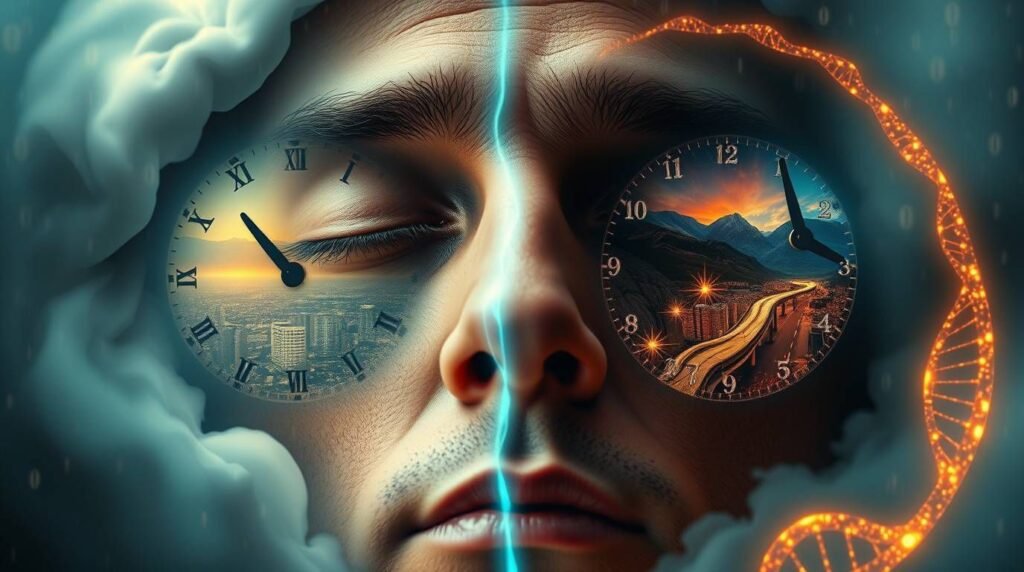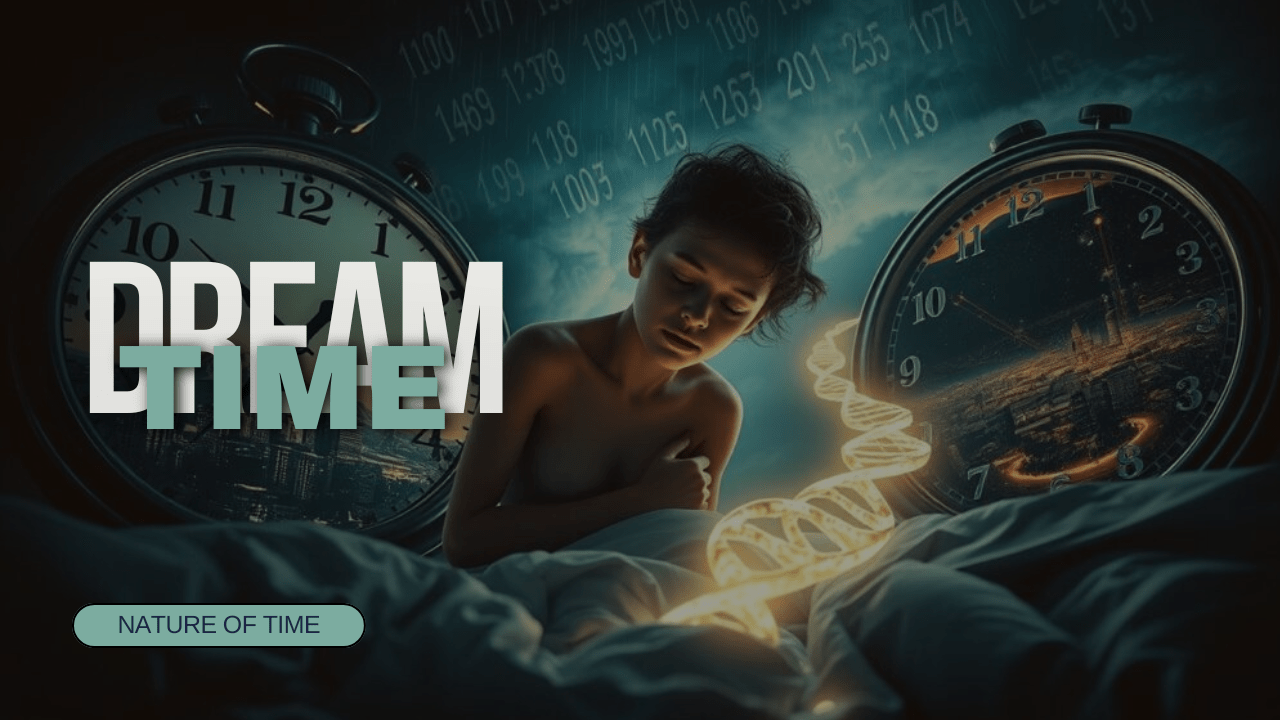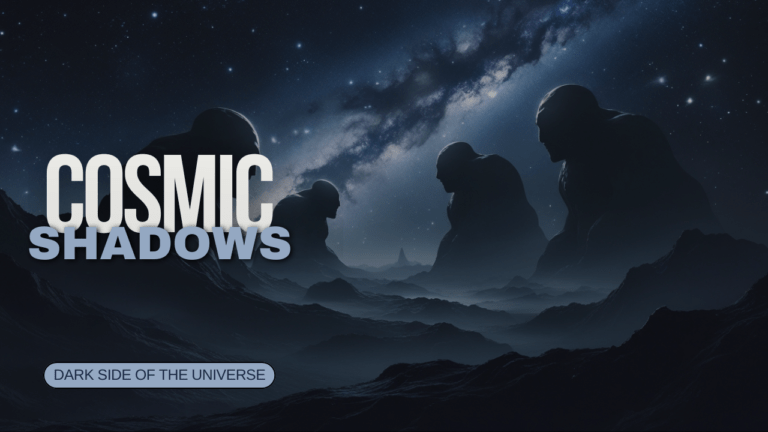What if time moves differently in dreams?
What If Time Moves Differently in Dreams?
Introduction
You wake up from a dream that felt like it lasted hours—only to find out you were asleep for 10 minutes. Or maybe you spend an entire night in a dream world, only to recall fragments that feel like seconds. We’ve all been there. But here’s the curious question: What if time actually does move differently in dreams—not just emotionally, but neurologically, or even dimensionally?
Could dreams be more than subconscious static? Could they be windows into a reality where time bends, breaks, or loops altogether?
Let’s dive into the phenomenon where time and sleep blur—and consider if our nightly adventures might be more than imagination.
What if time stretches or compresses in our dreams?
Time perception in dreams is notoriously strange. Some dream researchers have found that subjective time in dreams often doesn’t align with real-world time. You can live a whole lifetime in a dream—or watch one scene repeat endlessly in what feels like a loop.
A 2004 sleep study even suggested that people performing tasks in lucid dreams (like counting or walking) often match their real-time durations—but not always. Sometimes dreamers experience events that would take hours—compressed into just minutes of REM sleep.
So what’s happening? Your brain may be operating without the usual “timestamp” anchors: clocks, cause and effect, light cues. The result? Dream time becomes elastic. Your brain stretches moments, reverses events, loops memories, or rewinds storylines—without asking permission from physics.
Our Thoughts
At EdgyThoughts, we love the idea that dreams bend time. It’s oddly empowering. Because whether they’re psychological phenomena or cosmic journeys, dreams hint that time may not be as rigid as we think. If dreams are simulations, maybe your mind runs on a different clock. Or maybe, just maybe—you’re visiting somewhere else entirely. A place where time simply runs… weird.
Pros and Cons of Dream-Time Flexibility
Pros Cons You can live deeply in short real-world moments Disorienting—hard to trust memory or sequence May allow for healing, insight, or problem-solving Dream memories fade fast and can be confusing Suggests the brain can override time perception Unstable—no guarantee of control Possibly connects to lucid dreaming or astral experiences Still hard to scientifically measure or verify
Could dreams tap into a different dimension of time?
Some theories suggest that dreams aren’t just inside your head—they’re experiences in alternate mind-states or even other dimensions. In these realms, time might not follow a straight line. You might arrive in the middle of a story. You might jump forward, backward, or sideways.
If you’re entering a different frequency of consciousness, maybe time there flows like a spiral… or a pool… or doesn’t “flow” at all.
Certain indigenous traditions speak of the “dreamtime” as a sacred zone where past, present, and future overlap. Modern quantum theory hints that time may be non-linear. Put those together, and dreams could be your nightly passport to a place where time… rewrites itself.




Why do dreams feel longer—or shorter—than they really are?
Dreams can feel hours long, but you’ve only been asleep for minutes. Or the opposite—you sleep for 8 hours, and only remember 30 seconds of content.
Theories behind this include:
- Neural compression: Your brain can process complex scenes very quickly in REM sleep, making long dreams feel crammed into short times.
- No external reference: Without clocks or sun cues, your brain isn’t measuring time like it does when awake.
- Emotional intensity: Emotions can stretch time. Intense feelings make moments feel longer. Calm ones shorten them.
- Memory layering: You may remember dreams as long stories, even if they happened in compressed time.
Key Points You Should Know
- Dream time doesn’t follow physical time.
- Some dreamers report hours of content in minutes of sleep.
- Lucid dream studies show mixed real/dream time syncing.
- Dreams may reflect altered mental or dimensional time.
- Time in dreams is shaped by emotion, perception, and memory.
Explanation of Each Point:
1. Dream time isn’t normal time:
You can live an entire life in a dream or skip through events instantly.
2. Reports of long dreams in short sleep exist everywhere:
People describe entire novels, relationships, or journeys occurring in five minutes of nap time.
3. Lucid dreamers can sometimes measure time—but not always:
Some tasks, like walking, line up with waking time. Others don’t. Dream logic changes the pace.
4. Altered brain states or dream dimensions may affect time:
If dreams are brain-based simulations, they could operate with compressed processing. If they’re visits elsewhere? That place may simply have different physics.
5. Time is subjective—especially in dreams:
Your emotions, memory, and consciousness play with the timeline in ways waking life can’t.
What We Think
Dreams are weird—and that’s exactly why they’re so amazing. Whether they’re simulations, subconscious puzzles, or real-time portals to somewhere else, one thing is clear: they play by different rules. And the biggest rule they love to break? Time.
If your dreams feel too long, too short, or not linear at all—that’s not a bug. That’s the system.
Maybe it’s time we stopped treating dreams like illusions—and started treating them like time labs.
🔗 Related Articles from EdgyThoughts.com
🌐 External Resource
Learn more about dream time perception here:
Wikipedia – Time Perception in Dreams







One Comment
Comments are closed.